-
Product Name
CCAR2 Polyclonal Antibody
- Documents
-
Description
Polyclonal antibody to CCAR2
-
Tested applications
WB, IHC, IF
-
Species reactivity
Human, Mouse, Rat
-
Alternative names
CCAR2 antibody; DBC-1 antibody; DBC1 antibody; KIAA1967 antibody; NET35 antibody; p30 DBC antibody; p30DBC antibody; cell cycle and apoptosis regulator 2 antibody
-
Isotype
Rabbit IgG
-
Preparation
Antigen: Recombinant fusion protein containing a sequence corresponding to amino acids 654-923 of human CCAR2 (NP_066997.3).
-
Clonality
Polyclonal
-
Formulation
PBS with 0.02% sodium azide, 50% glycerol, pH7.3.
-
Storage instructions
Store at -20℃. Avoid freeze / thaw cycles.
-
Applications
WB 1:500 - 1:2000
IHC 1:50 - 1:200
IF 1:50 - 1:200 -
Validations
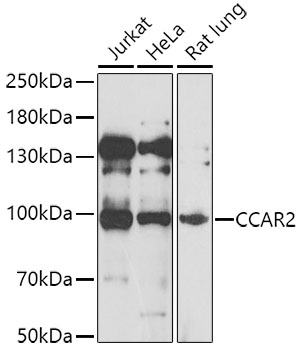
Western blot - CCAR2 Polyclonal Antibody
Western blot analysis of extracts of various cell lines, using CCAR2 antibody at 1:1000 dilution.Secondary antibody: HRP Goat Anti-Rabbit IgG (H+L) at 1:10000 dilution.Lysates/proteins: 25ug per lane.Blocking buffer: 3% nonfat dry milk in TBST.Detection: ECL Basic Kit .Exposure time: 30s.
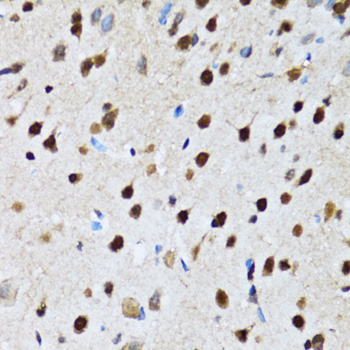
Immunohistochemistry - CCAR2 Polyclonal Antibody
Immunohistochemistry of paraffin-embedded human kidney using CCAR2 antibody at dilution of 1:100 (40x lens).
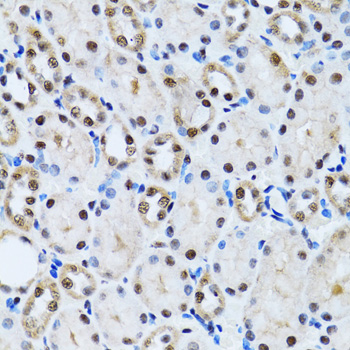
Immunohistochemistry - CCAR2 Polyclonal Antibody
Immunohistochemistry of paraffin-embedded rat brain using CCAR2 antibody at dilution of 1:100 (40x lens).
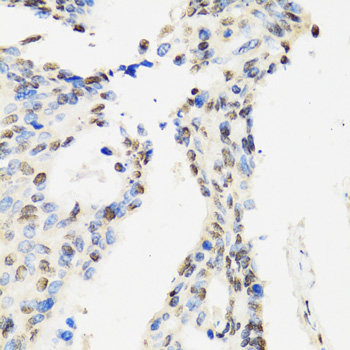
Immunohistochemistry - CCAR2 Polyclonal Antibody
Immunohistochemistry of paraffin-embedded rat kidney using CCAR2 antibody at dilution of 1:100 (40x lens).
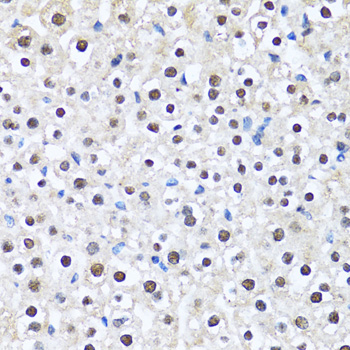
Immunohistochemistry - CCAR2 Polyclonal Antibody
Immunohistochemistry of paraffin-embedded human rectal cancer using CCAR2 antibody at dilution of 1:100 (40x lens).
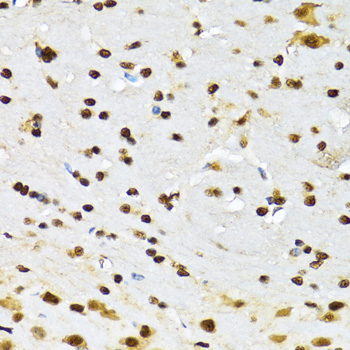
Immunohistochemistry - CCAR2 Polyclonal Antibody
Immunohistochemistry of paraffin-embedded mouse liver using CCAR2 antibody at dilution of 1:100 (40x lens).
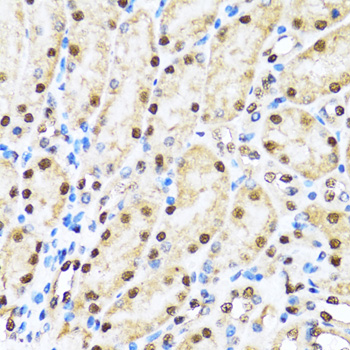
Immunohistochemistry - CCAR2 Polyclonal Antibody
Immunohistochemistry of paraffin-embedded mouse brain using CCAR2 antibody at dilution of 1:100 (40x lens).
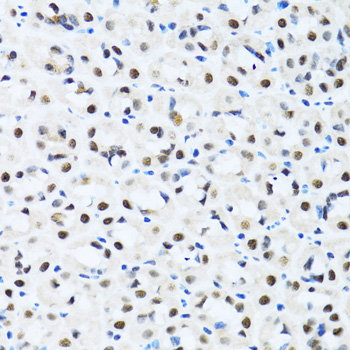
Immunohistochemistry - CCAR2 Polyclonal Antibody
Immunohistochemistry of paraffin-embedded mouse kidney using CCAR2 antibody at dilution of 1:100 (40x lens).
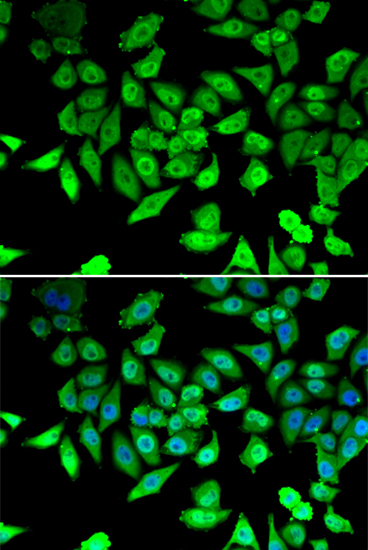
Immunohistochemistry - CCAR2 Polyclonal Antibody
Immunohistochemistry of paraffin-embedded mouse stomach using CCAR2 antibody at dilution of 1:100 (40x lens).
-
Background
Core component of the DBIRD complex, a multiprotein complex that acts at the interface between core mRNP particles and RNA polymerase II (RNAPII) and integrates transcript elongation with the regulation of alternative splicing: the DBIRD complex affects local transcript elongation rates and alternative splicing of a large set of exons embedded in (A + T)-rich DNA regions. Inhibits SIRT1 deacetylase activity leading to increasing levels of p53/TP53 acetylation and p53-mediated apoptosis. Inhibits SUV39H1 methyltransferase activity. As part of a histone H3-specific methyltransferase complex may mediate ligand-dependent transcriptional activation by nuclear hormone receptors. Plays a critical role in maintaining genomic stability and cellular integrity following UV-induced genotoxic stress. Regulates the circadian expression of the core clock components NR1D1 and ARNTL/BMAL1. Enhances the transcriptional repressor activity of NR1D1 through stabilization of NR1D1 protein levels by preventing its ubiquitination and subsequent degradation. Represses the ligand-dependent transcriptional activation function of ESR2. Acts as a regulator of PCK1 expression and gluconeogenesis by a mechanism that involves, at least in part, both NR1D1 and SIRT1. Negatively regulates the deacetylase activity of HDAC3 and can alter its subcellular localization. Positively regulates the beta-catenin pathway (canonical Wnt signaling pathway) and is required for MCC-mediated repression of the beta-catenin pathway. Represses ligand-dependent transcriptional activation function of NR1H2 and NR1H3 and inhibits the interaction of SIRT1 with NR1H3. Plays an important role in tumor suppression through p53/TP53 regulation; stabilizes p53/TP53 by affecting its interaction with ubiquitin ligase MDM2. Represses the transcriptional activator activity of BRCA1. Inhibits SIRT1 in a CHEK2 and PSEM3-dependent manner and inhibits the activity of CHEK2 in vitro.
Related Products / Services
Please note: All products are "FOR RESEARCH USE ONLY AND ARE NOT INTENDED FOR DIAGNOSTIC OR THERAPEUTIC USE"
